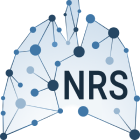Marlies Ketelaar received NRS Travel Grant

This conference is a specialized meeting covering recent findings in mechanisms behind type 2 immunity in health and disease. These type 2 cytokines are thought to play a role in the pathophysiology of asthma and allergy, among other immune-related disorders.
My PhD project focuses on the translation of the asthma-associated type 2 cytokine Interleukin-33 (IL33) into asthma pathogenesis and (prediction of) clinical phenotypes. This cytokine has gained significant attention as a potential novel mechanism underlying asthma and allergy (sub)phenotypes in recent years based on genetic, cell biology and clinical evidence.(1)
I have presented my poster describing the translation of asthma-associated genetic variation in IL33 into molecular mechanism underlying asthma pathogenesis. The three main messages are that: i) IL33 SNPs associate with a specific eosinophilic asthma subtype ii) this genetic variation associates with expression levels of IL33 iii) high levels of IL33 modestly alter epithelial cell function from bronchial brushes. Potentially this type 2 cytokine can be target for treatment in specific asthma phenotypes. I discussed our findings with Prof. Brusselle and Prof. Girard and received useful suggestions for future research. I have become updated on novel cell types important in type 2 immunity, including the recently discovered innate lymphoid cells (ILCs) and their subtypes, which also have been found in lung tissue. Based on this we consider applying my IL-33 model to these cell types. Useful lectures for this were: Prof. Locksley: (Day 1, University of California, San Francisco, US): ILC2s and dedicated tissue circuits. And Prof. McKenzie: (Day 1, MRC Laboratory of Molecular Biology, UK): ILCs in the regulation of adaptive immunity and metabolism. I have learned on the recent hypothesis around IL-33 protein cleavage mechanisms in disease in relation to its activity. This way I could test the presence of relevant, different IL33 isoforms in our samples from asthma patients. These samples I am currently using to associate IL33 SNPs with IL33 expression, and with asthma subphenotypes. A useful lecture was: Prof. Girard: (Day 2, CNRS - University of Toulouse, FR): Interleukin-33 (IL-33): a tissue-derived nuclear cytokine with critical roles in allergic inflammation. I have expanded my network to an IL33/epithelial group in Belgium: professor Brusselle (Ghent) followed-up with a guest lecture recently at the UMCG (my institution) as a start for further collaboration.
1. Grotenboer NS, Ketelaar ME, et al. Decoding asthma: translating genetic variation in IL33 and IL1RL1 into disease pathophysiology. J Allergy Clin Immunol. 2013

